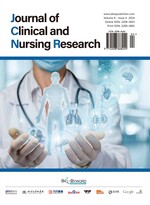Abstract
Objective: To investigate the associated collateral stigma of the family members of schizophrenia patients and analyze its current status and influencing factors. Methods: The Link Depreciation-Discrimination Perception Scale was used to investigate the status quo of the associated stigma of the family members of 169 schizophrenia patients diagnosed in 4 hospitals in a certain province. The results of the investigation were analyzed and summarized. Results: The detection rate of stigma associated with the family members of schizophrenia patients was 72.78%, with a score of 28.41 ± 3.92 points. The main influencing factors were the family member’s education level, the patient’s illness duration, the family member’s occupation, and the family-patient relationship. Conclusion: The detection rate of stigma associated with schizophrenia was relatively high. This requires increased attention and appropriate nursing intervention.
References
Lucarini V, Cangemi F, Daniel BD, et al., 2021, Conversational Metrics, Psychopathological Dimensions and Self-Disturbances in Patients with Schizophrenia. European Archives of Psychiatry and Clinical Neuroscience, 1–9.
Balter M, 2017, Schizophrenia’s Unyielding Mysteries. Sci Am, 316(5): 54–61.
Potkin SG, Gharaba Wi GM, Greenspan AJ, et al., 2015, Psychometric Evaluation of the Readiness for Discharge Questionnaire. Schizophr Res, 80(2–3): 203–212.
Karidi MV, Vassilopoulou D, Savvidou E, et al., 2015, Comparison with Schizophrenia. J Affect Disord, 184: 209–215.
Kvaale EP, Haslam N, Gottdiener WH, 2013, The “Side Effects'” of Medicalization: A Meta-Analytic Review of How Biogenetic Explanations Affect Stigma. Clin Psychol Rev, 33(6): 782–794.
Wang RX, Dong TT, 2019, The Current Status of Family Caregiver-Associated Stigma in Patients with Alzheimer’s Disease and Its Relationship with Caregiver Burden. China Nursing Management, 19(3): 345–349.
Link BG, Cullen FT, Struening EL, et al., 1989, A Modified Labeling Theory Approach to Mental Disorders: An Empirical Assessment. Am Soti Revi, 54(3): 400–423.
Xu H, 2008, Research on the Relationship Between Patients with Schizophrenia’s Sense of Shame and Their Medication Adherence, dissertation, Peking Union Medical College of China, Beijing.
Shi Q, Yan W, Dong YH, et al., 2018, Analysis of the Prevalence Status and Influencing Factors of Family Members’ Sense of Shame Among Inpatient Psychiatric Patients. Jiangxi Medicine, 53(7): 749–751.
Tang M, Zhang Y, Liu S, 2019, Analysis of the Current Situation and Influencing Factors of The Sense of Shame in 425 Inpatient Schizophrenia Patients in Remission. Journal of Nursing, 26(14): 43–47.
Sandeep G, Ajit A, Aakanksha S, 2017, Stigma Experienced by Caregivers of Patients with Severe Mental Disorders: A Nationwide Multicentric Study. International Journal of Social Psychiatry, 63(5): 1–10.
Singh A, Mattoo SK, Grover S, 2016, Stigma and Its Correlates Among Caregivers of Schizophrenia: A Study from North India. Psychiatry Research, 241: 302–308.
